Is this the world's favourite second-hand tractor?
- Published
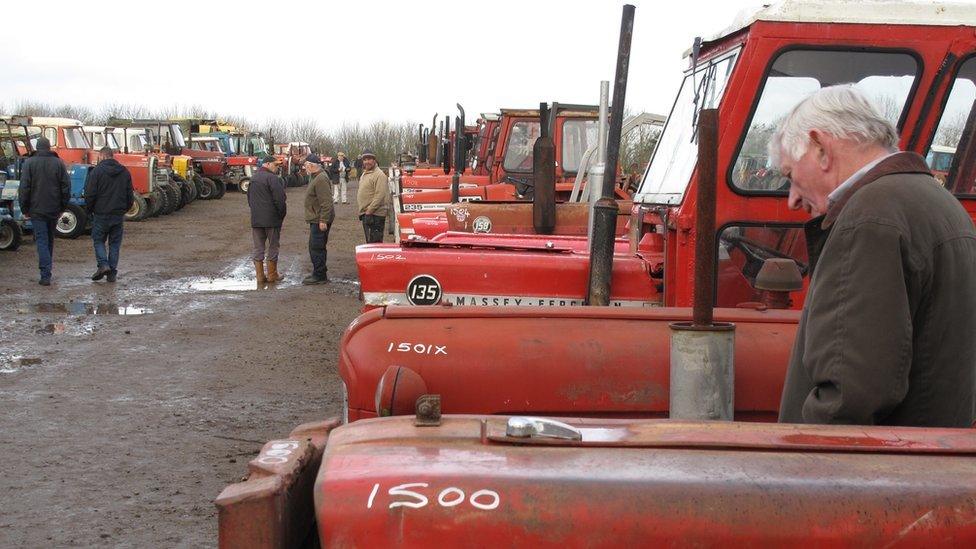
Two Massey Ferguson tractors, both out of production for decades, are still seen as an essential piece of kit by farmers in dozens of countries around the world. What explains their appeal?
A field in Cambridgeshire in eastern England, the size of 40 football pitches, is carpeted with row upon row of tractors.
With 35,000 registered bidders from more than 100 countries and about 2,000 lots under the hammer at each sale, it's the biggest monthly second-hand farming machinery auction anywhere.
Buyers travel here from across the globe, many of them from the developing world, looking for machines sourced mainly from the UK, Ireland and Scandinavia.
For many, especially those from Africa, the object of their quest is a Massey Ferguson 135, or its sister the 165. Produced in their hundreds of thousands for a decade starting in the mid-1960s, they were the most popular models of their day, says Bill Pepper, auctioneer and director of Cheffins, the company that runs the sales.
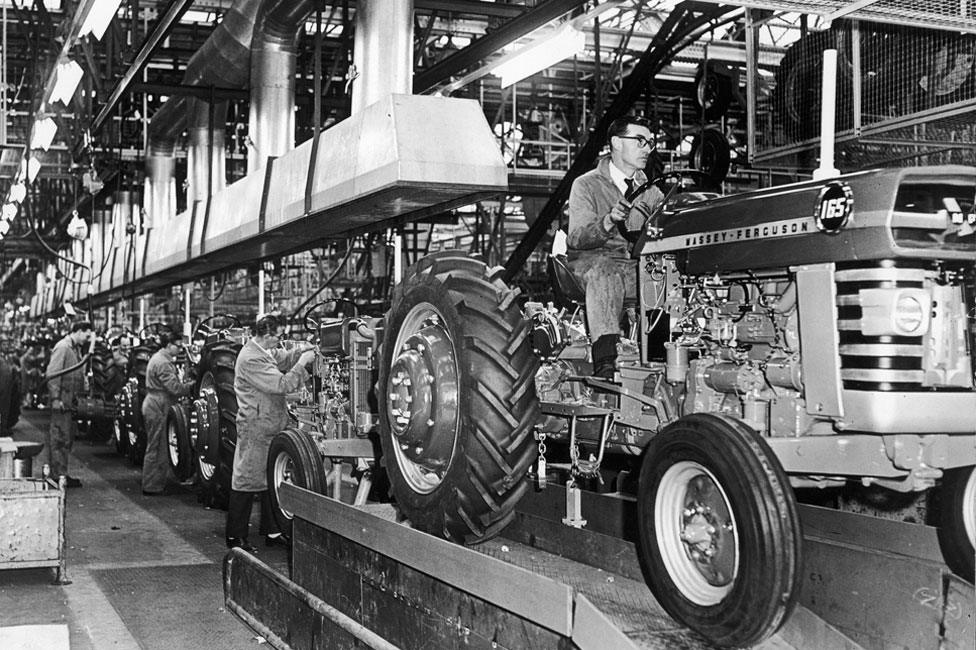
The new Massey Ferguson 165 on the production line in about 1964
"All these old tractors, some of our buyers refer to them as mechanical donkeys," he says.
It's the machine of choice for farmers who have been ploughing with cattle and carrying loads with donkeys, and are looking to upgrade.
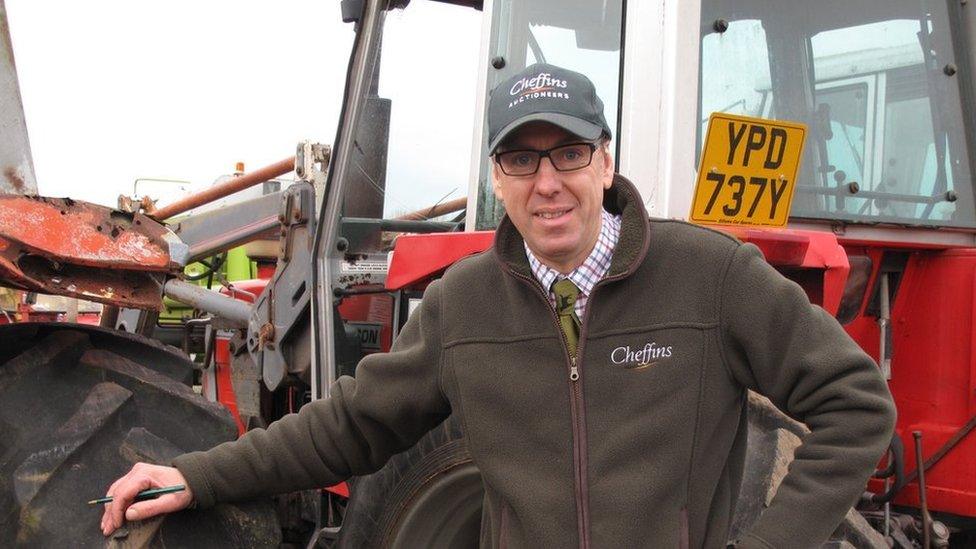
"These old Masseys, like the 165 and the 135, they're so basic but they're incredibly reliable and they just keep going on and on. Providing they've got a bit of fuel, a bit of water and there's oil in the engine they'll keep on going, probably until they're 100 years old," says Pepper.
"We've had examples where they've literally been sitting in a hedge for 10, 12 years, people have put a bit of diesel in them, they've tow-started them and boof! - off they go - just like that.
"Parts are plentiful and they are easy to fix. They have good, strong, basic mechanics. There's no electrics involved, so you haven't got any problems with that, and they just go on and on."

Find out more
Listen to Follow that Tractor on BBC World Service Radio, on Wednesday and Thursday 15 and 16 June - click here for transmission times or to listen online

The bidders are not only farmers, but also dealers.
Harsha Dharmawardene from Sri Lanka, who has been coming to the auction for 30 years, exported more than 100 Massey Ferguson tractors per year between 1993 and 2003 and once bought 86 in one day - every Massey on sale.
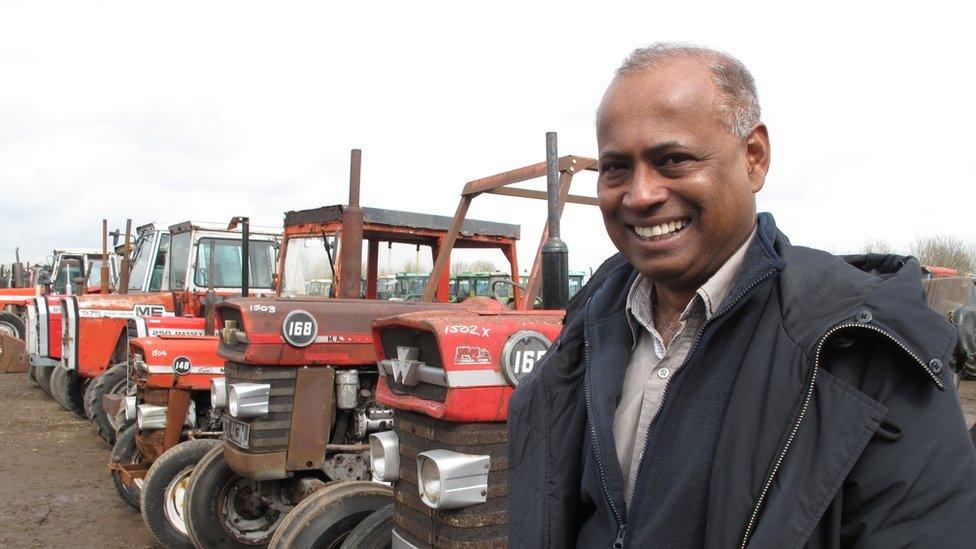
Harsha Dharmawardene's favourite is the 135
He ships the tractors to Sri Lanka, where he refurbishes them then sells them again to farms as far afield as Tanzania and Nigeria.
What do you look out for when buying a 40-or-50-year-old tractor?
Barnabas Sawe and Gideon Okungu from Kenya usually take a test drive, examine the engine and paintwork to see if it is original, not refurbished, and check the hours the tractor's engine has been working - tractors' lives are measured in hours, not mileage.
A good tractor can transform a village, Sawe says, helping in any number of ways - getting water from a river, for example.
"It transforms a society - it transforms a community," he says.
Most people who buy from the auction get their initial investment back in two years, by his calculation, and will then be making a profit.
One first-time visitor, Abdi Mohammed, is hoping he'll soon be able to transform farming in his native Somalia. When he was young in the 1970s and 80s Somalia was a big exporter of bananas, mangoes and papaya, but then it descended into a war from which it is only now emerging.
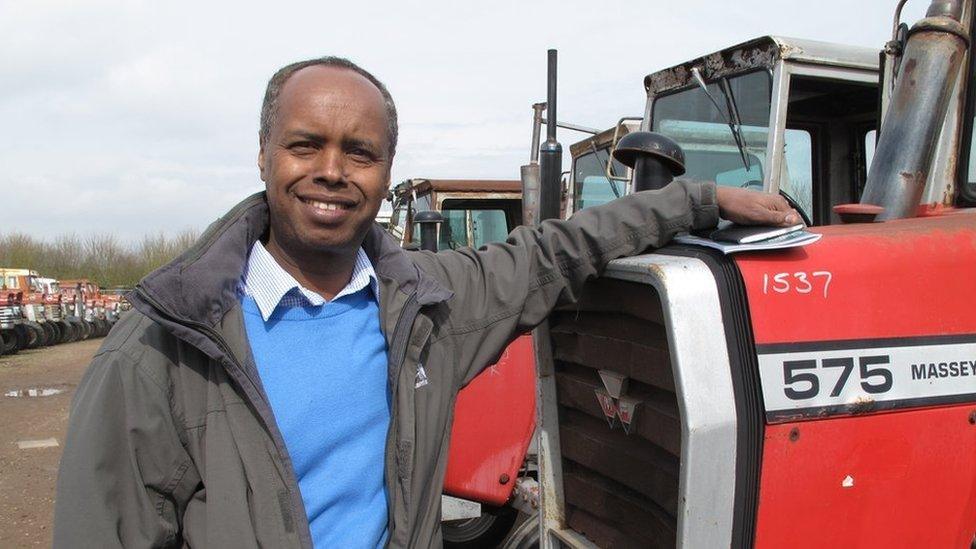
"When we were young, back home, we saw people using tractors, mainly Ferguson," he says.
"It's a new era in Somalia. This is the time to, maybe in a couple of years, go back home and build."
An old Massey may cost between £2,000 and £2,500. Once paid for, it needs to be dismantled, and loaded into a shipping container for a trip across the ocean.
"African buyers want their containers full," says packing expert John Mitcham.
So he removes cabs, wheels, engines, axles, windows, doors - and packs them in weights of up to 26 tonnes per container - that's usually six to 14 tractors in each one, though following one auction John was able to pack 35 tractors into two containers.
Customers in hot countries don't need cabins, and some don't want heavy wheels, and this allows John to squeeze more into a single container.
Not all foreign buyers want a Massey Ferguson, and not all who want a Massey Ferguson want the venerable 135 or 165. The most popular second-hand tractor, however, is the 165, according to Bill Pepper, and Cheffins sells about 20 per month.
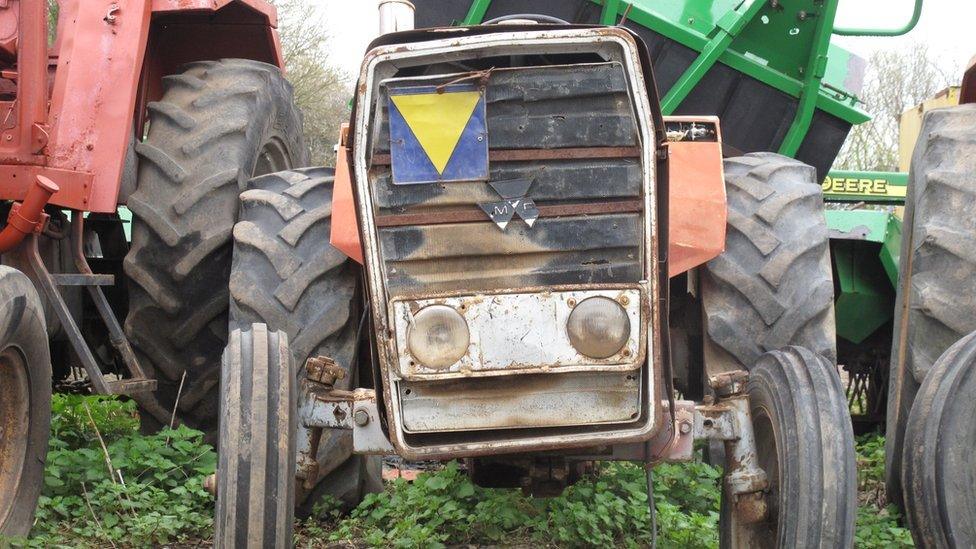
One reason, he suggests, may be that people from former British colonies came to study at agricultural colleges in the UK. "And the tractors which they would have had on their farms and also during their tutorials would have been Masseys because they were kind of number one in their day."
So maybe for some buyers it's not just the machine's simplicity and resilience that explains its appeal, but also a dose of nostalgia.
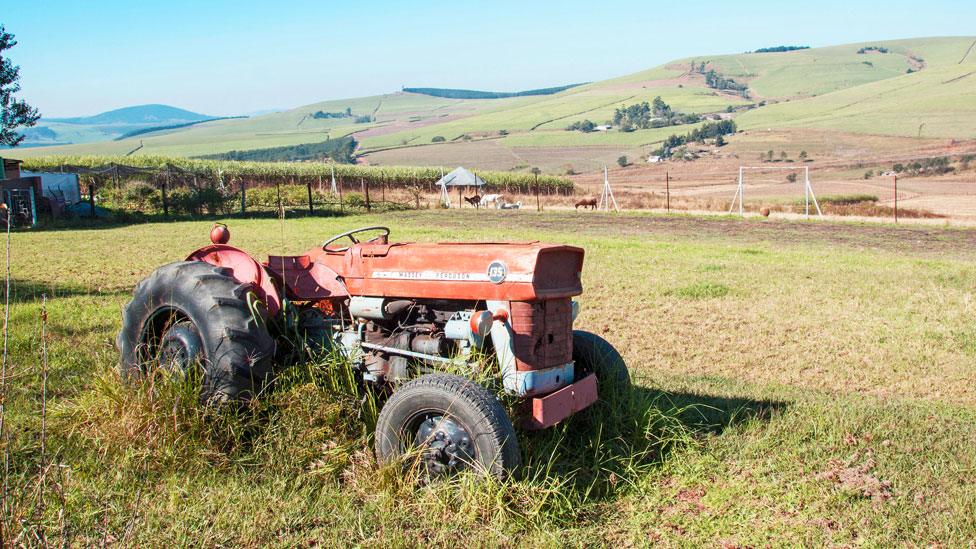
An elderly Massey Ferguson 135 in a field near Richmond, South Africa
Subscribe to the BBC News Magazine's email newsletter to get articles sent to your inbox.